Child and Adolescent Psychiatry Fellowship
.jpg?sfvrsn=89753abb_0)
Mission
The mission of the University of Colorado Anschutz Division of Child Psychiatry and Children's Hospital Colorado Department of Psychiatry and Behavioral Sciences is to improve the mental, physical, and emotional health of children, adolescents, and their families through the provision of high quality, coordinated programs of patient care, research, education, and advocacy. In partnership with the community, we will enhance our position as a national leader in child psychiatry and behavioral health sciences.
Class of 2024
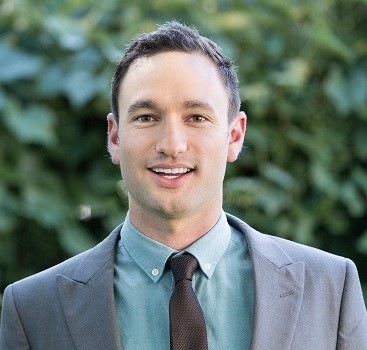
Dr. Alan Atkins, MD
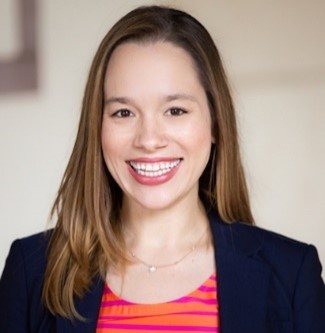
Dr. Ana Garces-Wood, MD
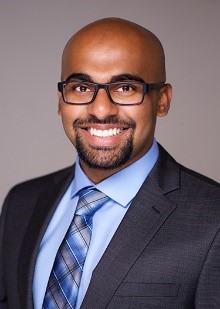
Dr. Faisal Kagadkar, MD
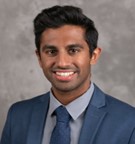
Dr. Rhiday Pandya, DO
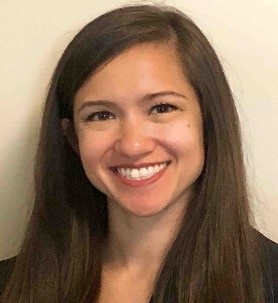
Dr. Joan Winter, MD
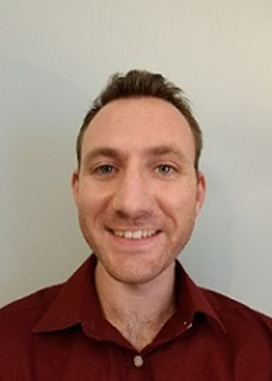
Dr. Gregory Wykoff, MD
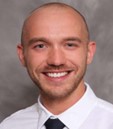
Dr. Bradley Zastrow, MD
Class of 2025
Overview
During the first year of fellowship the clinical and didactic experiences address essential skills and experiences. Then, the second year allows the resident to use elective time to gain deep experiences in specific clinical, administrative, and/or research areas. Both years have clinic time, dedicated therapy training, didactics every Tuesday morning, and call/crisis work.
Year 1
Intensive Patient Experience
Fellows rotate at Denver Health and Children’s Hospital Colorado in several unique and specialized settings.
| 3 Months | 2 Months | 6 weeks | 2 Months | 1 Month (Two two-week blocks) | 10 weeks |
|---|---|---|---|---|---|
| Inpatient Psychiatric Adolescent Unit *(With Inpatient Detox Beds) Denver Health | Inpatient Psychiatric Unit Children’s Hospital Colorado | Neuropsychiatric Special Care Unit: Inpatient and Day Treatment *(serving youth with neurodevelopmental disorders) Children’s Hospital Colorado | Consultation/ Liaison Children’s Hospital Colorado | Emergency Psychiatry Services Children’s Hospital Colorado | Partial Hospitalization Program & Eating Disorders Program Children’s Hospital Colorado |
| Outpatient Clinic | |
|---|---|
| Outpatient Clinic at Children’s Hospital Colorado 12 months | |
| 1 intake or 2 follow ups, and opportunity for weekly therapy | |
| Group Psychotherapy | |
| 6 months | 6 months |
| Anxiety Disorders Group or Gender Diverse DBT Group | Collaborative Coping/ Disruptive Behaviors Group |
| 1.5-hour group and 1 hour of didactics/supervision per week | 1.5-hour group and 1-hour didactics/supervision per week |
12 Months Outpatient Clinic One half day per week. One intake or two followups, opportunities for weekly therapy | |
6 Months Anxiety Disorders Group 1.5 hour group 1 hour didactics/supervision per week | 6 Months Disruptive Behavior Group 1.5 hour group 1 hour didactics/supervision per week
|
Year 2
Outpatient Clinics
CU Medicine Child and Adolescent Psychiatry Outpatient Clinic:
Fellows will maintain a caseload of approximately 4 half days depending on elective choices. Cases can be seen as often as weekly, depending on the patient's needs and treatment modality.
- Family Clinic (One half day a week for 6 months): Faculty with expertise in family therapy support fellows through shared cases, supervision and weekly case-based discussion series.
- Infant Clinic (One half day a week for 12 months): Faculty with expertise provide supervision, joint treatment, and accompanying didactics for diagnosing and treating children, typically ages 3-5 years within a relationship based framework. Topics of instruction include Crowell Assessments, Working Model of the Child Interview, FAN Model, Circle of Security Parenting, PCIT, Play Therapy and Child-Parent Psychotherapy.
School Based Mental Health
Residents rotate through school-based clinics in several Denver Public Schools in conjunction with faculty from Denver Health or work with a multidisciplinary team consulting to the Durango School District. Depending on resident interest, this varies from one half day a week from 6-12 months.
Autism Spectrum Disorder Experience (JFK Clinic)
All residents spend one half day per week for up to 6 weeks in an assessment clinic for children presenting with autism features. Residents participate in multidisciplinary team assessment including psychology, PT, OT, Speech.
Pediatric Neurology Clinic
Residents who have not completed their child neurology requirement during residency also participate in the Children’s Hospital Colorado (CHCO) Pediatric neurology clinic once a week for one month. This clinic uses a proximal learner, teacher model, whereby the neurology resident helps the psychiatry fellow negotiate the neurology clinic with ultimate precepting from faculty.
Community Mental Health & Integrated Care
Fellows generally spend one half day per week participating in integrated or community based care.
- Community Mental Health: Fellows provide C/L services, team consultation and direct clinical consultation to mental health professionals in a community mental health setting both in the metropolitan Denver/Denver Suburban areas (Aurora Mental Health and Mental Health Partners in Longmont), and in the outlying parts of the state of Colorado. Several clinics offer telemedicine experiences.
- Integrated Care Clinics: Work with a multidisciplinary behavioral team embedded in a pediatric teaching clinic at Denver Health or CLIMB at Children’s Hospital. Fellows provide in the moment consultation and teaching related to ADHD, anxiety, depression, suicide risk and other behavioral emotional difficulties to patients, pediatricians and other learners.
Electives
In the second year, several half days are devoted to individualized elective experience designed with a primary faculty mentor mentor to foster advanced knowledge and skill in research, clinical expertise, or administrative/teaching arenas. Current offerings include electives in: Research, Young Mother’s Clinic at CHCO, PROMISE Perinatal Mood Disorders Clinic at Denver Health, Healthy Expectations, Perinatal Mental Health Clinic at CHCO, Refugee Clinic, START Center (Stress, Trauma, Adversity Research treatment center), Down’s Syndrome Clinic, DBT group, TRUE Center Diversity, Rural Student Mental Health Consultation, Advocacy, EMR, and Leadership.
Longitudinal Experiences
Didactics
Fellows have one half day a week for protected didactics throughout both years. They are held in person in the Anschutz Health Sciences Building, on the Anschutz Medical Campus.
Supervision
Each resident receives a minimum of 2 hours of supervision per week. In the first year, receive an hour of supervision from faculty at CHCO, and supervision from service attendings. In second year, fellows are given 1 hour for clinic supervision and 1 hour for community clinician supervision per week.
On Call & Pediatric Emergency Service Rotation
Call responsibilities and the pediatric emergency service rotation are shared between first- and second-year fellows.
- Psychiatric Emergency Service (PES) rotation
- provides overnight coverage at Children’s Hospital Colorado (CHCO) in two, two-week blocks. Fellows rotate in PES from 4-10 PM Monday-Thursday, then go home and take-home call from 11pm-8 am. Fellows take exclusively home call from 4pm-8am on Sunday & Fridays. While taking home-call fellows determine final disposition for ER cases interviewed by in-house mental health clinicians and are responsible for acute concerns arising on the CHCO inpatient units. Fellows only come in to the hospital during exceedingly rare, true emergency situations. Fellows also are excused from didactics, clinic and other day time meetings during their PES rotations.
- Weekend and Holiday call
- consists of working on the Consultation-Liaison service alongside an attending and Behavioral Health Clinicians who are in the Emergency Department. The hours in-house are considered 8-5 PM Saturday OR Sunday.
Moonlighting
There are internal moonlighting opportunities at Children's Hospital Colorado (CHCO) for weekend coverage . Fellows must be in good standing with GME to moonlight.
Our 2-year ACGME accredited Child and Adolescent Psychiatry Fellowship at the University of Colorado offers a wide range of clinical experiences across a large academic medical center, multiple hospital systems, and community clinics. Fellows are supervised by excellent and engaged psychiatry faculty in a multidisciplinary setting. The program embraces a developmental, neurobiological framework within the context of family and larger environmental influences including culture, society, and systems. Our fellows are trained to address the full range of pediatric emotional/behavioral problems from infancy to young adulthood at the levels of prevention, assessment, and treatment. Graduates generate rich formulations and are competent in psychopharmacology as well as evidence-based psychotherapies.
Core values of the program include transparency, collegiality, and integrity. We are interested in recruiting passionate and curious fellows. Fellows have a strong voice in creating change within the program and have established a legacy of continuous improvement for upcoming classes. We value scholarship and equip graduates to continue engagement in scholarship, whether in academic medicine or other settings.

Program Leadership
Dr. Anne Penner Program Director
| 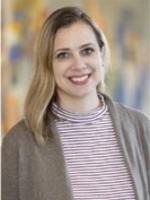 |
Dr. Beau Carubia Assistant Program Director | 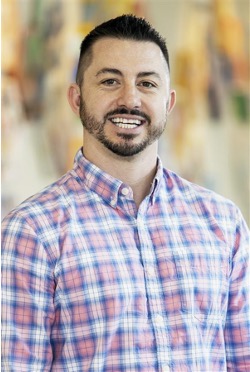 |
Dr. Melissa Batt Assistant Program Director |
Faculty
We have 30 child and adolescent psychiatrists who are passionate and dedicated to training. Psychologists and faculty from other disciplines make valued contributions to training. Specific and general expertise among faculty enhance the training experience.
Areas of expertise include:
- Infant Psychiatry (Associated with Harris Fellowship)
- Systems of Care
- Autism and Development Disabilities
- DMDD
- Substance Abuse
- Family Systems and therapy
- Neuroimaging
- Eating Disorders
- Integrated Care (primary care clinics, school based clinics)
- Telepsychiatry
- Advocacy
- Peripartum mental health
- Consultation/Liason
- Education
- Crisis assessment
- LGTBQ youth
- Anxiety
Faculty participate in a reverse educational competency committee process to utilize trainees’ feedback for their own growth.
Contact Us
Children's Psychiatry Fellowship
13123 E 16th Ave,
Gary Pavilion 4th Floor
Aurora, CO 80045
Phone: (303) 724-6277
Fax: (303) 724-4963
Matthew Nichols
Program Coordinator
Email: [email protected]
Anne Penner, MD
Program Director
Phone: (720) 777-6118
Email: Anne Penner
